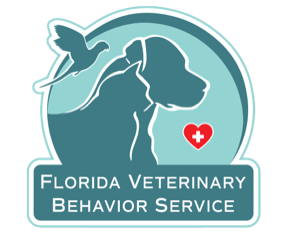A nice man who looks to be in his early 70s sits in my office with Midge, his young, black and white Border Collie who he received as a birthday gift from his daughter. Midge is very pretty with a shiny coat and a perky, fun loving face. He complains that she never sits still, herds his grandchildren and wants to play all of the time. He just can’t keep up with her. He asks me if I have a sedative that I can prescribe for her. Seems a little far fetched? Not really. I see it all the time. It’s a dog-owner mismatch. A marriage made in, well you know where. Dogs are often impulse buys or gifts without a lot of time spent researching how that particular dog will fit into that particular family.
Do you know how to pick the right puppy for you? Lets start with a little quiz…
You’ve decided to add a puppy to your family. How do you go about finding the right one?
- Think about why you are getting a puppy and what characteristics you would like in an adult dog. Then, try to find a puppy who fits the bill.
- Go to the nearest pet store and pick the cutest one!
- See if your 4 year old can spot one that looks good on the internet, then have it shipped.
If you picked “1” you answered correctly! Your relationship with your dog will outlast most marriages. It pays to think about what you are looking for in a dog. Consider size, temperament, grooming requirements, trainability, and exercise requirements. If you want a pure bred dog, research what that dog was originally bred for on www.akc.org or the breed club website.
Even though our breeds may have not been used for their original purpose for many years, the genetic traits for which they were selected still govern their behavior to some extent. Take the example of two of my favorite breeds: Beagles and Rottweilers. Beagles have been bred for 500 years to put their nose down and run for as many miles as it takes while baying to let everyone know that they are on the scent. Rottweilers were bred to guard the property, working independently from the owner. If you can’t live with the dog in the description, don’t choose that breed! You can get help finding the right breed on one of many breed match websites (just do an internet search), by meeting dogs of different breeds at places where dogs gather and by speaking to your veterinarian.
If you have decided to get a pure bred puppy, adopt her from a reputable breeder. Studies have shown that there is a genetic component to many types of aggression, fear, noise phobia and compulsive disorder. In addition, each breed has their own genetic predispositions to medical diseases. When you speak to the breeder, he or she should at least be familiar with those diseases. Most good breeders will have screened for them.
The current scientific information points to the parent’s behavior as the best predictor of the pup’s behavior. We’ll look at the influence of how you behave on your pup’s behavior in later blogs. Be sure to meet and interact with at least one if not both parents. Sometimes the sire will not be at the breeder’s house, however, you can call his owner to set up a meeting or at least to talk about his personality. If you aren’t given access to the parents and they are on the property or if you see the parents exhibit worrisome behaviors such as aggression or fear go home without a puppy.
What about puppy stores? Generally you should avoid storefronts which sell puppies. Puppies should be with the litter and the dam until they are 7-8 weeks old. Often pups are shipped at a young age in order to get into the store at the right age for sale. Wait, don’t get your hackles up! I am not saying that all puppies from puppy stores are bad dogs. Lets look at what we know through published scientific studies. Puppies who are separated from their litters or their dam before 8 weeks are more likely to develop problem behaviors such as destructiveness, fear, aggression and reactivity when compared with pups who are left with the litter until 8 weeks. Because you won’t have contact with the breeder, you will have no indication of the medical or behavioral predispositions of your new puppy. Finally, in my experience, stores that sell pups are more likely to have sick pups. This is because often, many pups from different litters are put into one place facilitating the spread of disease.
You might choose to get a mixed breed puppy. Mixed breed pups make great pets. Their behavior is just as predictable as a purebred and they often are less likely to have common medical problems found in purebred dogs. You also have the deep joy of knowing that you helped a dog who really needed it. Wonderful mixed breed pups are available from a wealth of sources such as humane organizations, animal control and rescue organizations. If you are able to meet the parents, make sure to do so. If the pup is in foster care, you can ask the foster mom about the pup’s personality.
No matter what the source, if you can’t meet the parents, you will have to try to assess the behavior and health of the pup before you bring her home.
